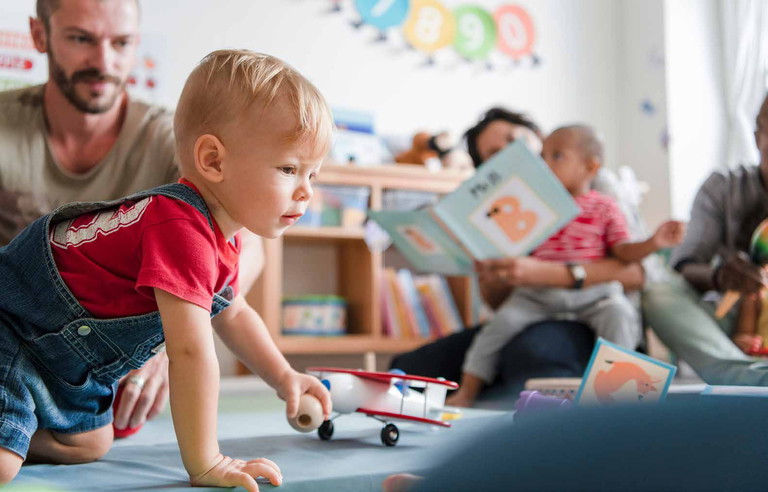LAW-CALL
Getting to grips with groups
The team at Law-Call, a 24-hour legal helpline available to Alliance members, explains the legal considerations when running a baby and toddler group

Baby and toddler group, parent and toddler group or stay and play – whatever you call your set-up, these sessions provide a valuable opportunity for families to meet new people and enjoy play activities in a safe, informal and friendly atmosphere. Here are some common legal considerations for those leading sessions...
Ofsted
As parents/carers visiting your group will always be responsible for their own children, you don’t need to be Ofsted registered. However, you will still need to consider the safety and wellbeing of those who attend, including any volunteers you may have.
Staying safe
Group leaders should have an Enhanced Disclosure and Barring Service check, along with appropriate training in first aid, food hygiene, health and safety and safeguarding.
If you plan to use any equipment during your sessions, it will need to conform to CE safety standards. Toys should carry the British Toy and Hobby Association lion mark. Check equipment and environment before the start of each session and carry out regular risk assessments.
Ratios
While there are no fixed rules about how many adults or children can attend a group session, your venue will have a maximum capacity for fire regulations. Assess how many children can play safely with the toys that you provide and the number of volunteers you have available.
Ground rules
Establish clear ground rules to promote safety at your group. For example: don’t let children access the kitchen, keep a separate space for babies and don’t allow hot drinks near the children and always secure your external door.
There should be an easily accessible first aid kit stocked with items for both adults and children, along with an accident book to record any incidents. This should be kept confidential.
Storing data
You will need to comply with data protection rules by informing parents and carers:
- what information you hold on them and their children
- how you will store it securely
- how long you will hold the information
If you plan to take photographs, you will need to ask for consent for this and be clear about why and where they will be used, especially if you plan to share them on your social media pages to promote your group.
Although parents and carers will be attending with their children, you may also wish to keep a record of their contact details in case of an emergency. Having an attendee list so that you know who is present will support fire safety procedures. It will also allow for you to plan for quieter and busier sessions. You may also be able to contact families if, for example, a session has be to cancelled at the last minute.
Safeguarding
It is vital that you have an up-to-date safeguarding policy in place to protect children and any vulnerable adults, as well as your team. All team members will need safeguarding training and must have a copy of your policy, which they should agree to implement. Your policy should be reviewed annually and kept up-to-date with current legislation.
Written information should also be given to families, informing them of the policy and specific measures to ensure the safety of the children. A copy of the safeguarding policy should be displayed clearly while the group is in session.
Food safety
If you provide food and drink for families, aside from tap water from the mains, you will need to follow hygiene requirements. If you are providing snacks, you should ask about any allergies so that you can meet individual needs and be aware of any serious and potentially life-threatening reactions. You should have a clear policy on illness and communicate these with families. For example, if a child has chickenpox, you’ll need to ensure that they are kept at home until they recover to avoid spreading it to others.
Insurance
Your group will need to have insurance cover in case an adult or child is hurt. Check whether the premises you are using has its own insurance and seek advice about any insurance you should take out.
Ask to take a copy of the premises’ insurance policy before you start using the space. You may wish to seek insurance that covers your group for theft if this is not covered by the premises’ policy.
Registered charities
Remember, if your group’s income is more than £5,000 and you want to fundraise to have new equipment or provide different activities, you will need to register as a charity.
Find out more
If you have any legal questions about your baby and toddler group, please contact Law- Call for bespoke advice. You can find their contact details in the Members’ Area of our website at portal.eyalliance.org.uk.